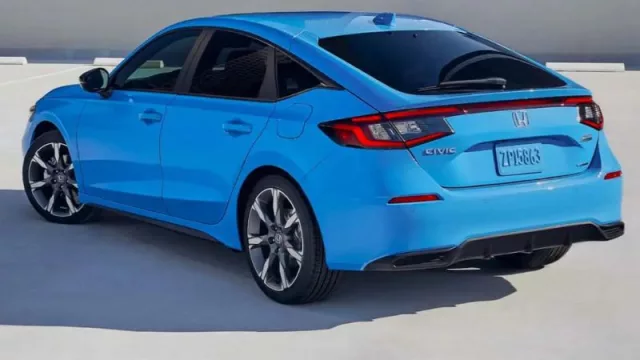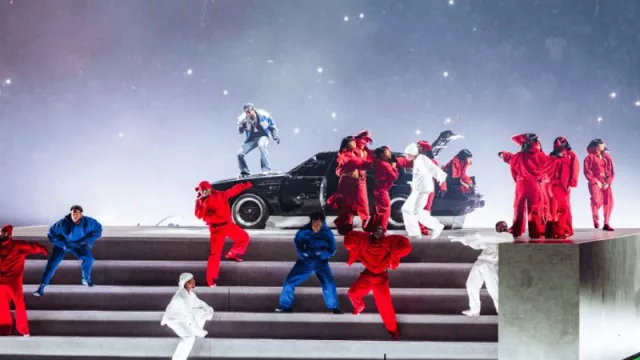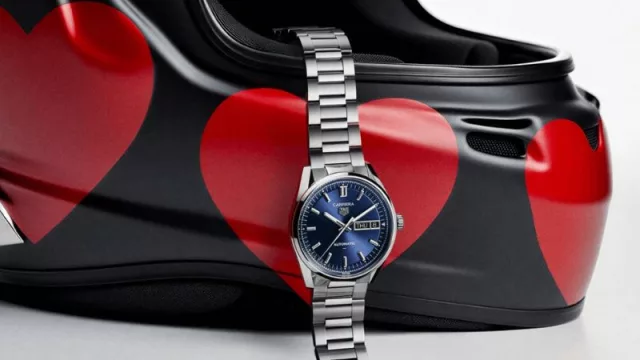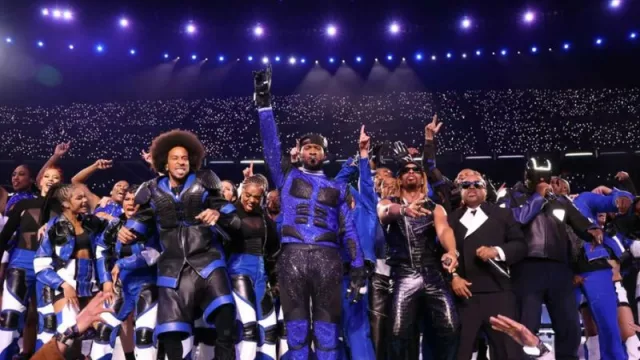In anticipation of collaboration in areas such as environmental technologies, electrification, and software development, discussions are underway covering a broad range of topics. The three companies agree that to expedite this process, it is essential to create new value through the integration of the technologies and expertise cultivated by each entity, thereby enhancing business efficiencies.
Mitsubishi's involvement in the areas of potential collaboration under discussion with Nissan and Honda will not only contribute new insights and strengths but will also provide additional synergies that can only be generated by the three companies, creating fresh business opportunities.
The Honda Civic has been a popular choice among compact car enthusiasts for decades. In 2025, an enhanced gasoline version of the Civic will be introduced alongside the debut of the Civic Hybrid. The new Civic design features a fastback roofline and a refreshed front bumper with robust headlights and a smaller hexagonal grille. While specific details about the Civic Hybrid's powertrain have not been disclosed, it is anticipated to utilize a 2.0-liter engine combined with a dual-motor hybrid system. Honda also plans to retain many useful features across both models, including Honda Sensing technologies and wireless connectivity for mobile devices.
Mitsubishi will join Nissan and Honda's electric vehicle alliance to tackle competition from Chinese automakers in the market. This collaboration, initially announced in March 2024, positions the three brands as the second-largest automotive alliance in Japan. While specific benefits for Mitsubishi have yet to be detailed, it is expected to share its plug-in hybrid technology and small truck models with Honda. Nissan has faced challenges in electric vehicle sales, selling only 140,000 units in 2023, while Honda sold just 19,000. The alliance seeks to standardize vehicle software and enhance its product offerings in an increasingly competitive market.
The Mitsubishi ASX has been a success in Australia for over a decade, remaining one of the most popular small SUVs. Despite competition, the ASX continues to sell well, with over 6,000 units sold in the first half of this year. Mitsubishi plans to modernize the ASX as part of its "Momentum 2030" strategy, which will include hybrid and electric models. The new generation of the ASX is expected to utilize plug-in hybrid (PHEV) technology, similar to that applied in other brand models. Additionally, conventional hybrid versions are anticipated, responding to growing demand in Australia.
Although Mitsubishi has not revealed specific details about the new ASX's design, it is expected to feature a more streamlined and modern appearance. The new model will likely include triangular headlights and a distinctive grille, inspired by the designs of popular rivals. Price-wise, the hybrid ASX is expected to compete with the Toyota Corolla Cross Hybrid, starting at AUD 36,480. The new generation of the ASX is expected to hit dealerships in the latter half of 2025, positioning Australia as a key market for Mitsubishi. However, as new technologies are introduced, it is likely that prices will rise compared to the current model.
-
"We are thrilled to welcome a new member to the strategic alliance between Honda and Nissan. Mitsubishi Motors brings unique technologies and expertise and has been collaborating with Nissan as a partner. Through collaboration among the three companies, we hope this alliance will generate greater value and provide unique products and services from each company that meet diverse customer needs," stated Makoto Uchida, Executive Representative, President, and CEO of Nissan.
-
Toshihiro Mibe, President and Executive Representative of Honda, remarked: "The automotive industry is undergoing a transformational period that occurs only once every century. We anticipate that the combination of technologies and expertise developed by Nissan and Honda, along with the strength and experience of Mitsubishi Motors, will enable us to address various electrification and intelligence-related challenges more swiftly on a global scale and help lead social reforms as a market leader."
-
Similarly, Takao Kato, Executive Representative, President, and CEO of Mitsubishi Motors, indicated, "Conversations between Nissan and Honda regarding potential collaboration have progressed, and we have decided to participate in this framework. Collaborating with partners is essential in today’s automotive industry, which is experiencing rapid changes due to technological innovations such as electrification and intelligence. We believe we can uncover new possibilities in various fields through collaboration among the three companies."
The new 2025 Honda Civic showcases an updated design featuring a slightly larger grille and a fresh front style. A significant development is the introduction of a hybrid powertrain, available in two new trim levels: Sport Hybrid and Sport Touring Hybrid.
Introducing the 2025 Honda Civic: A New Era of Innovation
The 2025 Honda Civic has arrived, showcasing a refreshed design featuring a slightly larger grille and a striking new front fascia. The standout revelation is the introduction of a hybrid powertrain, available in two new trim levels: Sport Hybrid and Sport Touring Hybrid. This advanced system combines a 2.0-liter Atkinson cycle four-cylinder engine with a duo of electric motors, delivering a remarkable 200 horsepower and 232 lb-ft of torque, outpacing the Civic Si in performance.
-
Honda asserts that this hybrid variant is quicker than the previous turbocharged 1.5-liter models, which will be phased out, leaving only the Si in the lineup. Anticipated fuel efficiency is close to an impressive 50 miles per gallon, making it a compelling choice for those seeking an economical yet high-performing vehicle. Additionally, it features four levels of regenerative braking and a finely-tuned suspension to enhance ride quality and reduce noise.
The exterior design is further complemented by new colors like Solar Silver Metallic and Urban Gray Pearl, while the interior of the hybrid models boasts leather seating and a 9-inch infotainment screen. For the first time, the hybrid variant integrates Google services directly into the Civic. According to Honda, the hybrid Civic marks a significant leap towards their goal of achieving zero-emission vehicle sales by 2040. Sedan models are set to hit dealerships in June, with hybrid options available in both sedan and hatchback formats. Pricing will be announced later this year.
Why Are Japanese Brands Forming an Alliance Now?
The rising dominance of Chinese automakers in the global market—particularly in the electric vehicle sector—poses a significant challenge to traditional industry leaders. In response to this threat, Honda, Nissan, and Mitsubishi have strategically decided to join forces to enhance their competitive edge.
What Benefits Will This Alliance Bring to Consumers?
This collaboration will enable the brands to deliver a broader array of products and cutting-edge technologies. Consumers can expect more competitive vehicles in terms of pricing, innovation, and sustainability.
How Will This Impact the Global Automotive Market?
The alliance has the potential to shift the balance of power within the global automotive landscape. As Honda, Nissan, and Mitsubishi bolster their positions, it’s likely that other manufacturers will be compelled to reassess their own strategies and partnerships to remain relevant.
What Role Does Electrification Play in This Alliance?
Electrification is a critical element of this partnership. With advancements in battery technology and a surging demand for electric vehicles, these brands are focused on developing innovative solutions that will allow them to effectively compete against Chinese manufacturers.
A Bright Future Ahead
The collaboration between Honda, Nissan, and Mitsubishi signifies a paradigm shift within the Japanese automotive industry. This cooperative approach not only enhances their competitiveness but may also encourage other brands to reevaluate their strategies. In a world where innovation is the standard, the ability to adapt and collaborate will be essential for success.
Final Thoughts
As the automotive industry faces unprecedented challenges, the capacity for manufacturers to unite and share expertise will be crucial. The alliance between Honda, Nissan, and Mitsubishi stands as a testament to the resilience of the Japanese automotive sector and a model for collaboration in an increasingly interconnected and competitive environment. The narrative is continually evolving, and this partnership could be the catalyst propelling these titans toward a future brimming with possibilities.
-
Registrate sin cargo, y recibe el newsletter solo dejando tu mail y nombre aquí.
-
Sign Up for Free: Register and receive our newsletter by simply leaving your email and name here. (https://infonegocios.miami/suscribite-al-newsletter)












Tu opinión enriquece este artículo: